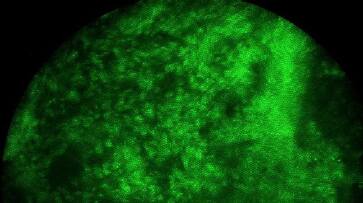A biopharmaceutical company claimed that the drug uses peptides and a unique toxin that only targets and terminates cancer cells without affecting any of the healthy cells. Sceptics offer a word of caution people saying that there still many unforeseen factors that the drug will have to face in human trials.
A team of Israeli scientists state have that they have found the “complete cure for cancer, media reports state. They say the cure will be made available to cancer patients in early 2020. What’s more, the scientists claim that cure will be cheap and effective and will have minimal side effects.
As per reports, the treatment called MuTaTo is developed by Accelerated Evolution Biotechnologies Ltd. (AEBi).
The chairman of AEBi, Dan Aridor said, “We believe we will offer in a year’s time a complete cure for cancer.” The biopharmaceutical company provides a combinatorial biology screening platform technology, which provides functional leads to very difficult targets.
MuTaTo uses peptides and a unique toxin that only targets and terminates cancer cells without affecting any of the healthy cells.
According to Dr Morad, the CEO of AEBi, the reason why existing cures fail is because the cancer cells mutate and spread in order to avoid the drug and this where MuTaTo will prevail as it attacks the receptors of the cancer cells from three directions, from which cancer can’t mutate.
The Israeli scientists claim that the drug can reduce the side effects of other treatments and can be personalised.
After successful trials on mice, reportedly, the drug will face human trials this year and Dr Morad is hopeful that it will perform as expected.
However, there is still scepticism in the medical field. The chief medical officer of the American cancer Society (ACS) Len Lichtenfeld, cautioned people and said that though this was exciting news there are many things to keep in mind.
In his blog titled, “A Cure For Cancer? Not So Fast,” he stated that though he shared in the hope that the cure turns out to be exactly as expected by AEBi, he stated that this hasn’t even been proven effective as a treatment, let alone a treatment.
He also brought to light various factors that one should note before accepting this as the truth. He stated that the news report published by Jerusalem Post initially is based on information provided by the company. This has not been published in scientific literature where it would be subject to review.
He also stated that though peptide display techniques are very powerful research tools for selecting high affinity binders, they do have a difficult road as potential drugs.
“This is based on a mouse experiment which is described as “exploratory.” It appears at this point there is not a well-established program of experiments which could better define how this works—and may not work—as it moves from the laboratory bench to the clinic” added Lichtenfeld.
Though there is a possibility that this may work, he stipulated that there are unforeseen and unanticipated obstacles ahead and that it will take some time to prove the benefit of this approach, but the odds are not in its favour.
Keeping the hope alive though Lichtenfeld said that he hopes that this treatment bears fruit, but he wanted people to understand that the process of getting the treatment from trials on mice to human trials is a difficult and complicated path.
Last Updated Jan 31, 2019, 5:21 PM IST









![Salman Khan sets stage on fire for Anant Ambani, Radhika Merchant pre-wedding festivities [WATCH] ATG](https://static-gi.asianetnews.com/images/01hr1hh8y86gvb4kbqgnyhc0w0/whatsapp-image-2024-03-03-at-12-24-37-pm_100x60xt.jpg)
![Pregnant Deepika Padukone dances with Ranveer Singh at Anant Ambani, Radhika Merchant pre-wedding bash [WATCH] ATG](https://static-gi.asianetnews.com/images/01hr1ffyd3nzqzgm6ba0k87vr8/whatsapp-image-2024-03-03-at-11-45-35-am_100x60xt.jpg)


